As Daniel Durant’s life story reaches its crescendo, he delivers his American Sign Language with such gusto that he cuts his hand with a fingernail. “Signing can be dangerous,” he tells me, via his interpreter, but also through a cheeky smile, a shake of his freshly scratched left hand, and an exaggerated roll of his engaging blue eyes.
Because even though Daniel has been completely deaf since birth, he’s become a master of self-expression. He’s a talented, animated storyteller using his face, body, and heart — skills that earned him a starring role in ‘CODA’, the deserving winner of Best Picture, among other awards, at the Oscars earlier this year.
Daniel has also developed a deep love of music, even though he has never heard a note. And he is pouring that passion into his current participation in ‘Dancing with the Stars’, the Disney+ competition show where he has to learn and perform at least one new dance every week.
And grasping these opportunities has helped him to truly find happiness, despite facing almighty challenges in his life, including being given up as an infant by his biological parents, who were both deaf, with his mom struggling with alcohol and drug addiction.
“I’m proud that I’m deaf,” Daniel explains. “I feel strong mentally, and I am fired up. Whatever I dream, and whatever I want, I know I can do it. I have a special talent, with my facial expressions and my ability to become a different character. I know it’s still a difficult road ahead, but I believe in myself now.”
Life has certainly not been straightforward for Daniel, but he has risen above adversity to find success, fulfillment, and joy. First, navigating the tests of being the only deaf child in a mainstream school, then finding his talent for acting and starring in a Broadway musical, before landing the life-changing role of Leo Rossi in ‘CODA’. In that film, the first to win the Best Picture Oscar with a predominantly deaf cast, he played the brother of Ruby [Emilia Jones], a teenager attempting to balance the responsibility of being the only hearing member of an otherwise deaf family with her musical ambitions. And now, aged 32, Daniel is loving his next act, surrounded by song once again, becoming a household name dancing on a primetime TV classic.
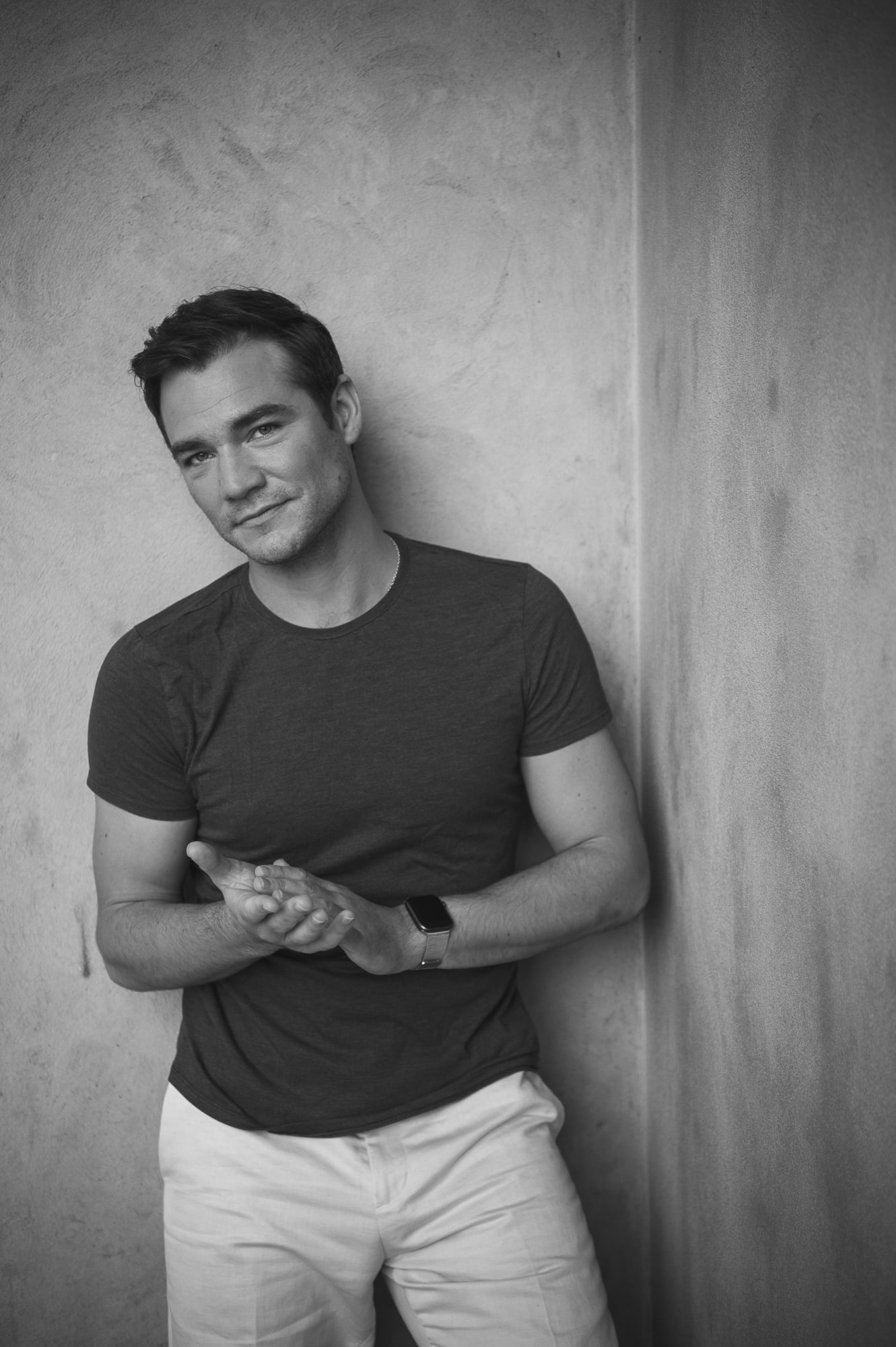
You’ve starred in ‘CODA’, a beautiful movie about music, and now you’re competing in ‘Dancing with the Stars’, a world-famous dance show. I’d love to know a little more about your relationship with music, and how it makes you feel.
I love this question. Growing up, I didn’t really know much about music. I’m fully deaf, ever since I was born. I can’t hear a thing. But I can feel music. And when I feel the vibration from the bass or whatnot, I can feel it through my body. I’m more sensitive to it. And watching music videos on TV, and seeing how people dance, I can see the beat and how they match up their dance with it.
There’s a beat for everything, whether you’re deaf or not. Our heart beats. Time ticks. Engines have their pattern. Everything in the world has a rhythm and a beat. So I can feel connected with that. And I have fun moving my body to the music. I also look at the audience’s reaction. Sometimes people are crying, or sometimes they’re like, ‘Wow.’ So you can tell how the music makes them feel. That was the case in ‘CODA’ for Ruby’s deaf family, and how we were able to see that she was so talented.
So now, on ‘Dancing with the Stars’, there are rules for every dance. My first week, I had to learn tango, and it’s very strict with the frame. Second week, I had to do jive, and it’s just such a fast dance. So every dance is so different. But I don’t depend on the beat. My partner, Britt [Stewart], shows me the music, and I figure out the beat and I feel it, and I try and match it up sometimes. But mainly, she just teaches me the dance, telling me we’re going to move quick during this part, and then we’re gonna move more slowly during this part, and I remember the choreography. Britt is a wonderful partner, she’s so open-minded, and is learning how to sign — so she’s teaching me dance, while I teach her ASL. She shows me the man’s perspective of the dance, and we practice together, until all the beat and all the rhythms, the speed changes and everything, are inside me. So I don’t depend on feeling the vibration of the music, as some people think I do, it’s already in me. And even though I can’t hear, it’s working out.
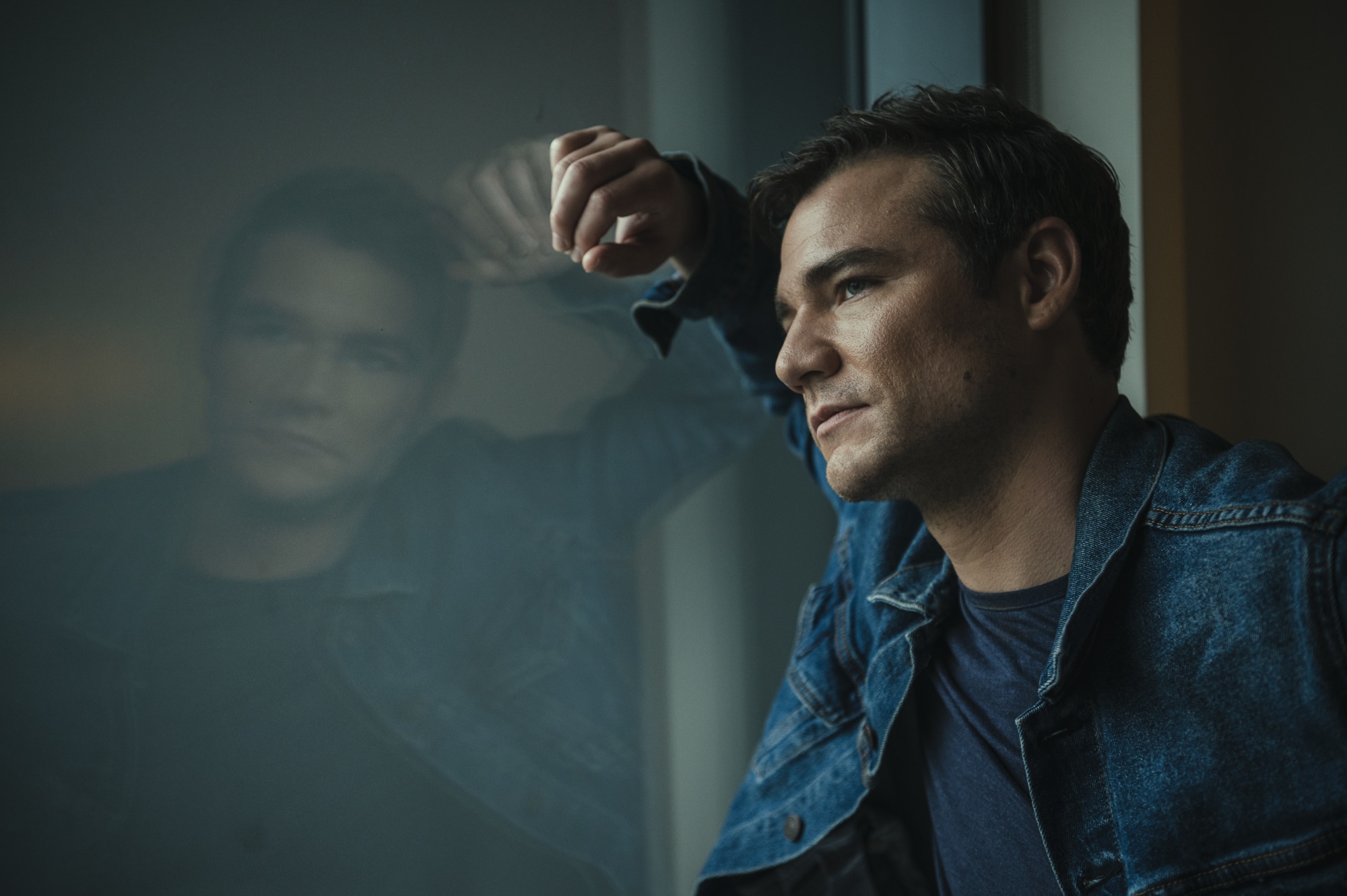
At what point in your life did you start to realize that you could enjoy music too?
I was adopted by two wonderful moms when I was 18 months old. One of my moms loves music. And I remember, ever since I was a child, I’d go to a music event or whatever, and I could feel the music. I could see people dancing. And on TV, there’d be music or someone performing on a show, and I would watch that. I was fascinated by how they moved. Even though they were singing, and I couldn’t hear it, I could watch their body move in a different way. And that’s where I learned it has something to do with the beat, and I loved watching that.
Then I was involved in a play called ‘Spring Awakening’ on Broadway, and that’s where I learned about counts and technical stuff. I had no idea about choreography growing up, so that was my first time in that play, being really involved personally with music, and how to present it. So I saw how the choreography connected with the music and also connected with the ASL in the play. So we had to make sure we signed at the right time, and that’s where I learned about music a bit more deeply.
I loved ‘CODA’, it was my favorite film of last year. I remember your character in that movie would sometimes play music really loud in the car to experience the vibrations. Is that something that you’ve ever done?
Oh yes, definitely. I have a funny story about that. I played for a soccer club, so that means we traveled all around the state to different cities. My mom would always turn up the music for me in the car, so I could feel the beat. I would tell my mom, ‘Please turn it higher,’ but it started to hurt her ears. So she went to Best Buy and she bought a new sound system, with a subwoofer in the trunk, so I could feel the bass without turning it up so loud. I could see the window shaking, I could feel the whole car vibrating, and would enjoy it and just dance in the car.
So one day, my moms went to the store, and I told them, “I’m going to stay in the car.” I turned up this new sound system, so I could feel the bass, and I started dancing. I was having a blast. Then a stranger drove by and looked at me in a weird way. And I just thought, “Wow, he must be impressed with my speakers.” Back in the day, it was a big deal to have a sound system like that. Then another stranger drove by, and she also looked at me and rolled down her window, and I gave her a thumbs up and kept dancing. I wondered what song this was because I was getting all this attention. And then my moms came out of the store and they sat in the car and started laughing. I said, “What is this?” And they said, “You’re listening to NPR talk radio!” So in that moment, I learned the difference between the rhythm of talking and a song, thanks to my moms.
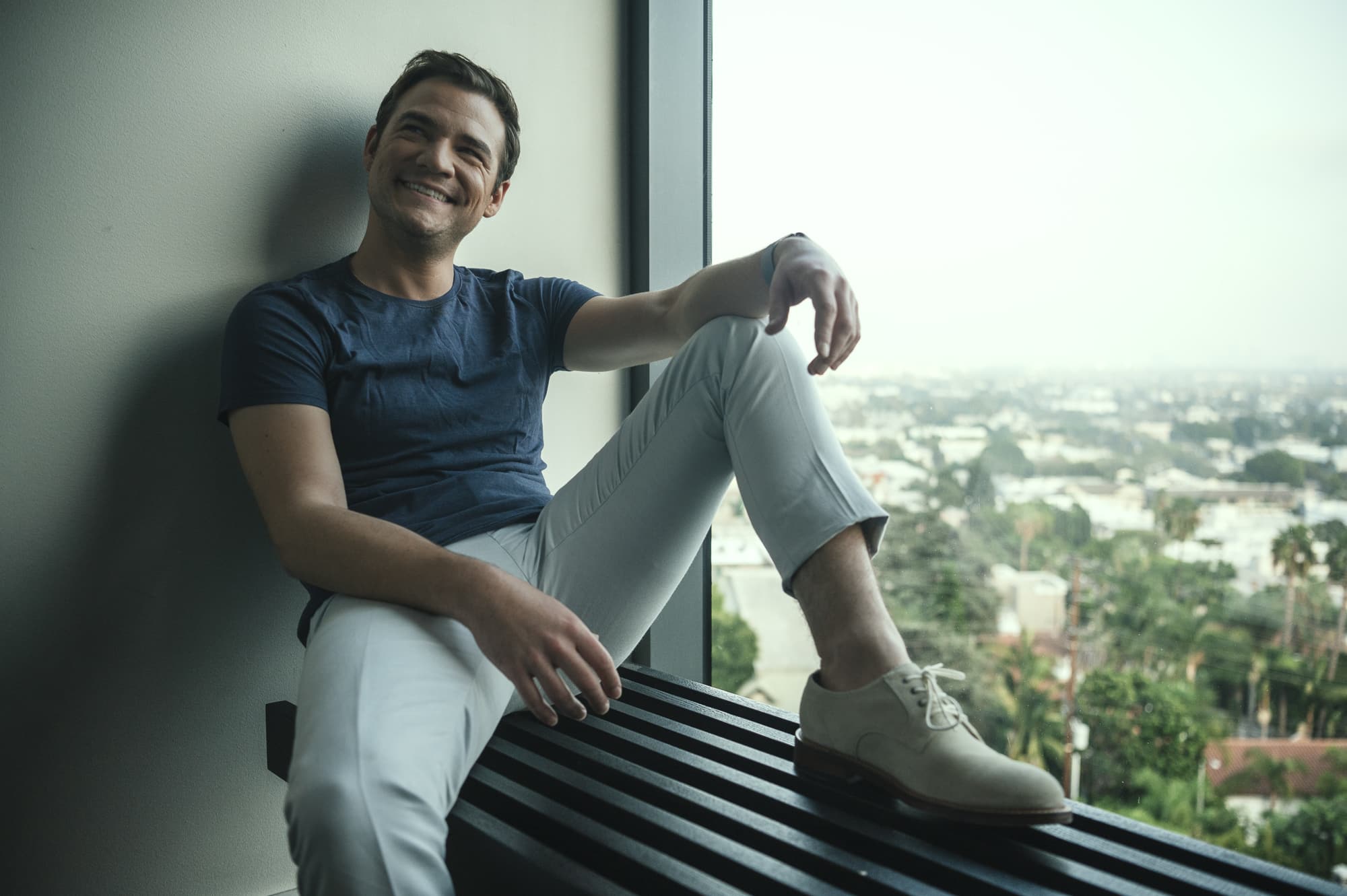
Tell me a bit more about your moms. They sound like amazing women.
Yeah, definitely. As I mentioned, my biological parents were both deaf. So I’m a second generation deaf person in my biological family. And it’s sad, my mom struggled with drugs, and drinking, and being abusive. And she just left me in a crib basically, when I was an infant, and she didn’t really take care of me. Then one day, she decided to give me away to her friend. She said, “Take care of him, and I’ll be back in a month.” One month past, then three, then nine months, and my mom never returned. So this woman found my biological dad, and my dad’s sister, my aunt, adopted me when I was 18 months old. At that time, I had no language. I would just yell and point. And my aunt, now my adoptive mom, started teaching me my first language, ASL. And that’s where I began to learn about deaf culture, that I’m not the only deaf person on this earth.
I grew up going to mainstream school in Duluth, Minnesota, and I was the only deaf person in the whole school. And I struggled with socializing because, especially in elementary school, kids are silly. They talked about stupid things. And I had an adult interpreter on my shoulder at all times. As you can you imagine, these elementary school kids were not comfortable having me around, with my adult. So I struggled. I was frustrated.
And then, during school holidays, I would go to deaf camp. And there I was so happy. I had friends. I was the same as everyone. There were people my age that I could play with and talk with. I found out they all went to he Minnesota State Academy for the Deaf. And I was disgusted. Deaf camp was fun, but it was only a week, and then they’d all go back to their deaf school, and I’d go back by myself to the mainstream school. And I was very frustrated and alone. I’d get bullied and picked on, because they didn’t understand deaf culture. They didn’t understand that I had to use my hands and my face to talk. And they were scared of me. I was just different. So I told my moms, “I want to go to the deaf school,” and there was a big argument. They said no, because the school is four hours away. That means if I went, I’d have to live in a dorm.
So I struggled in the mainstream school until I was about to go into eighth grade, and then my moms finally let me go to the school for the deaf. And I was so happy, I was finally home, everyone could sign. My people were on campus, my football coach was deaf, my teachers were deaf. I was normal. I finally caught up with my social skills. I improved my signing, and I joined a theater class, which is where I found my passion for acting. I would like people to know I wouldn’t be where I am now if I didn’t go to the school for the deaf.
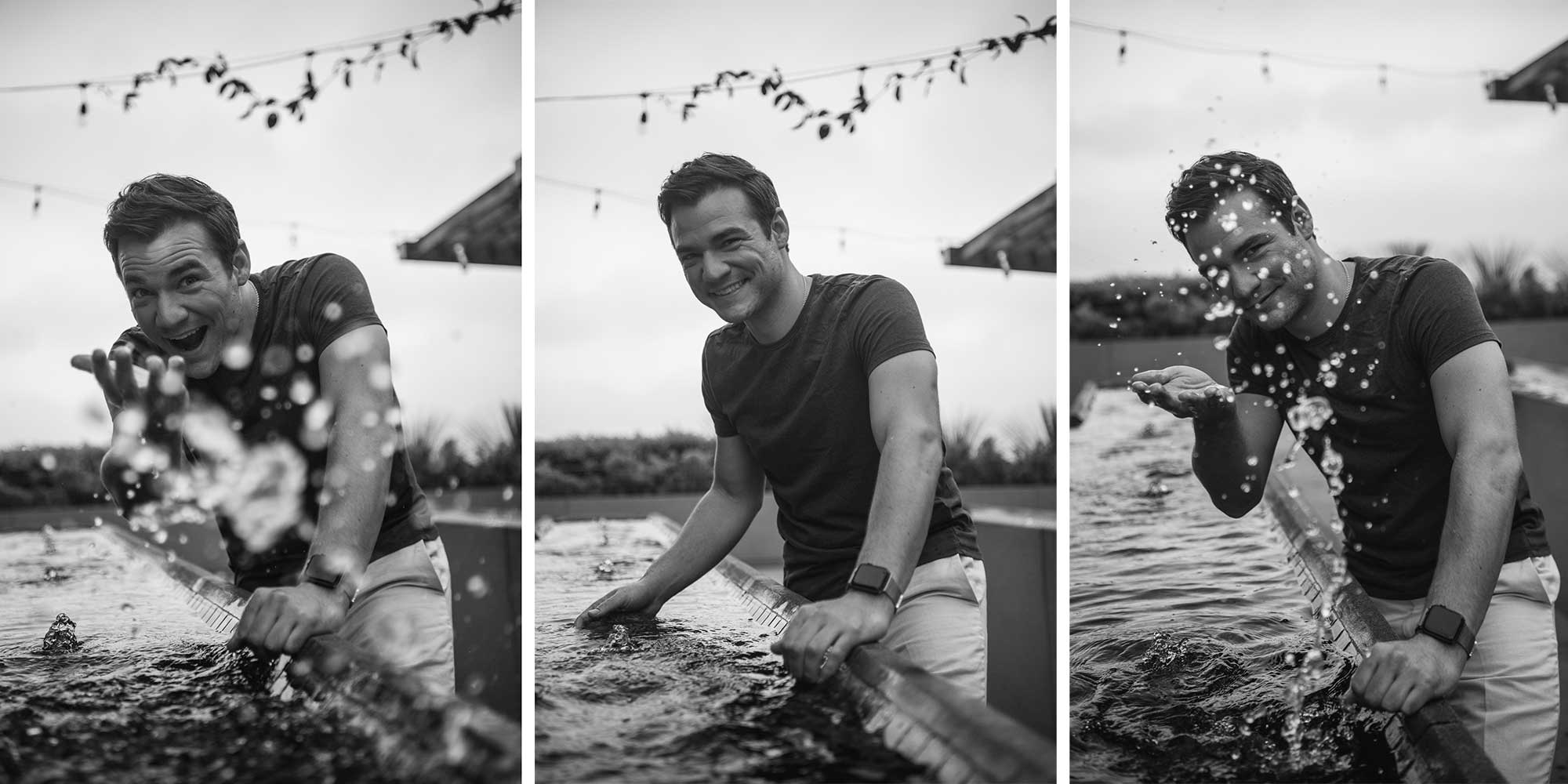
So how did that interest in theater progress to being in an Oscar-winning movie?
Well, my first time being in a play was when I was nine years old, before I went to the school for the deaf. The only person I could sign with was my interpreter. So I always had a blast with him, he was my friend, and we shared stories. I loved drawing pictures too, and he recognized that I was an artist, so he wrote a children’s play for me. I enjoyed every moment, I loved putting a different character on top of myself, and just releasing my stresses as a different person. It was so much fun. So I found that I loved acting, and I told my moms I wanted to do more plays, but sadly, I’m from a small town, so there wasn’t an opportunity to act more until I got to the school for the deaf. They had a theater program, and I joined that and realized I really could be an actor. So many people — teachers, parents — told me, ‘You’re so good. Maybe in the future, you’ll be in a TV show or a movie.’ I’d say, ‘Yes, that’s my dream.’ And that’s where I started to chase that dream.
Tell me about the ‘CODA’ experience? That must have been an amazing project to be a part of.
Oh, big time! I auditioned for ‘CODA’ and it was very competitive, I got called back three times. The director Sian Heder, who also wrote the film, loved me — she wanted to take me right away. But the casting director wanted to pick another guy. So when I got the role, I was so emotional. And then when my manager let me know who my co-stars would be — Marlee Matlin and Troy Kotsur — I was so excited. I’d worked with them both before, and they’re amazing people. I’d been on Broadway, and had worked on TV, but to be in my first big feature film was huge for me. When we got together, it felt like we were real family. It was genuine and we were so connected. Sometimes on the weekend, Marlee would cook dinner in her Airbnb, and Troy and I would watch the football game, and Emelia [Jones, who played Ruby Rossi] would be there and we would teach her sign language, and she picked it up so quickly. And then later, when the movie wrapped, we all cried like babies because we had to disconnect from each other and go our separate ways. But we’re never going to truly disconnect. To this day, we’re still in close contact. We text each other all the time and still feel like we’re a family in our hearts. I didn’t expect to go through this journey, getting all this recognition and all these awards, and making it all the way to the Oscars stage. I still can’t believe that I was at the Academy Awards. It’s a dream come true, and I appreciate it every moment.
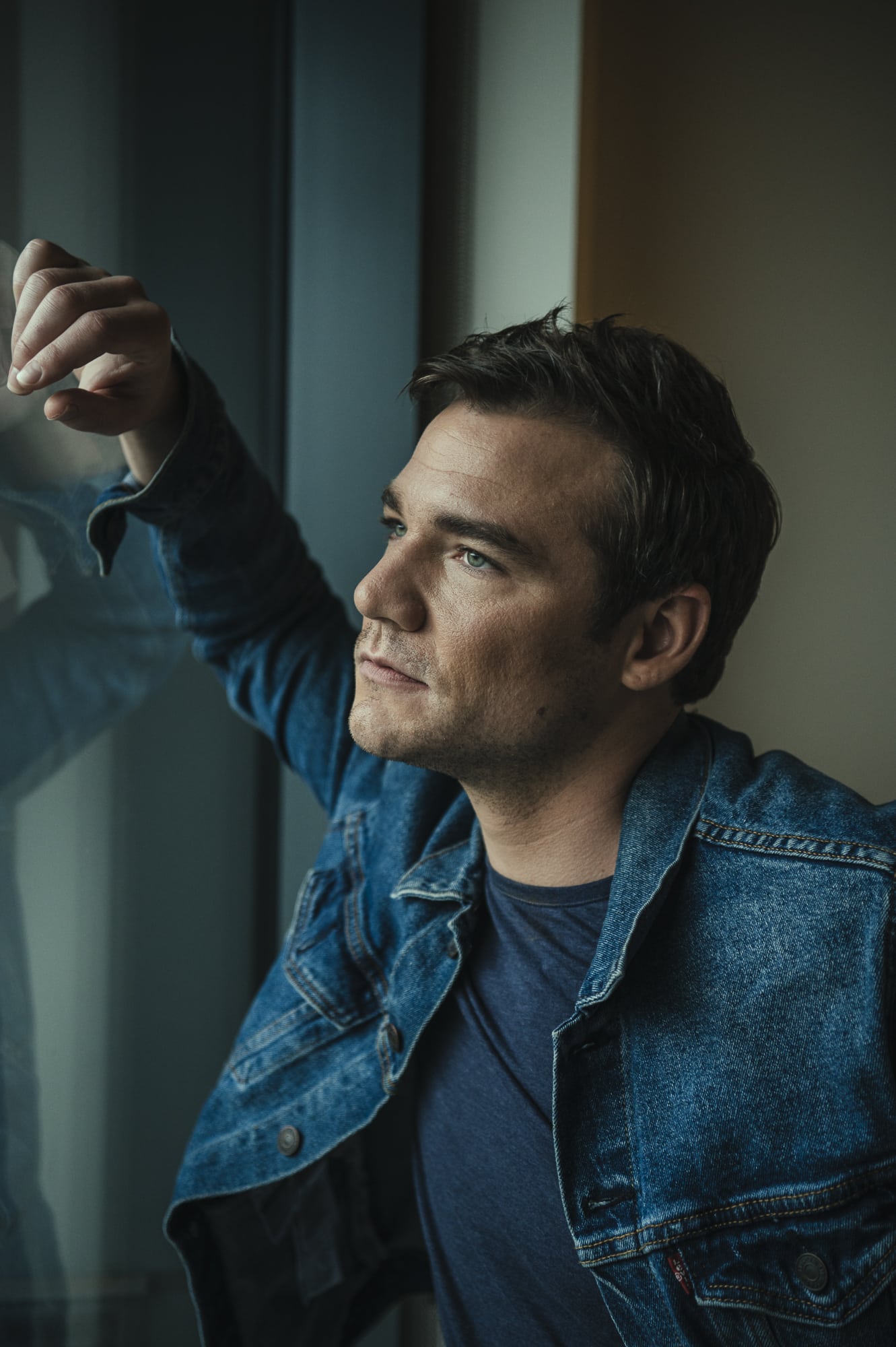
Do you think the movie was a significant moment of change for the deaf community as a whole, perhaps encouraging more mainstream storytelling focused on the deaf community in the future?
Yes, ‘CODA’ hit the world hard. People saw how it works with deaf actors. The producers who previously owned ‘CODA’, they wanted to use big name actors to act as deaf people. And Sian, and Marlee Matlin, who was already on board, said, “No.” So the movie was sold to another producer, and they then moved forward with the authentic casting, and got Troy, Marlee and myself.
When you see our story, it’s not just about deaf people. It’s about family. You can see the hearing world, and the deaf world. And it’s nice to show our language, and what it looks like. Troy was dirty and funny, and hearing people could see that our language is visual and beautiful. And after that movie, there’s so much more opportunity for deaf actors out there. I just hope that continues, and it’s not a fad. It’s important to show that authentic casting. If a character is in a wheelchair, I don’t know that feeling, so I don’t deserve that role. Someone who’s in a wheelchair deserves to do that.
I can see you’re in great physical shape — probably helped by all this dancing you’ve been doing — and you seem in great mental shape too. What do you do to keep yourself happy and healthy?
For health physically, I love playing sports. My favorite sport was football, it made me so happy. Just doing something physically, and working your body, and training hard at something. Doing whatever your coach says, and being pushed until you throw-up in training or something, that builds passion in you. After I graduated from high school, I fell off with competition, and I didn’t do anything physical, and I didn’t realize that I had a hunger for it that I wasn’t fulfilling. So I was working hard at becoming an actor, and got my first role at Deaf West Theatre here in LA in 2012. But it was so stressful, because my character was very sad and very poor. And not just my character, but myself. Working in theater here in LA was a struggle, and I struggled with my health and my mental health. And then ‘CODA’ happened, and I became more successful, and I had some money, and I started to workout again.
I’m happy you asked me that question now, at the right time. Because now I’m enjoying working out again, and taking these dance lessons, and learning something new about myself. Coming into ‘Dancing with the Stars’, and moving my body, the worry and stress just all went away. Learning to dance seriously is a new experience for me, and I’ve found I’m a different Daniel. It’s therapy for me. I’m fitter than I’ve been in a long time. I’m happier than I’ve been in a long time. And I feel great. Training is tough, but I’m excited to show up and I’m ready to learn a new dance every week. I’m loving myself way more than I ever have before. Even more than when I was playing football. So dance is a passion for me, and I’m promising myself that after ‘Dancing with the Stars’ is over, whatever happens, I will continue to pursue dancing. And that will keep me happy.
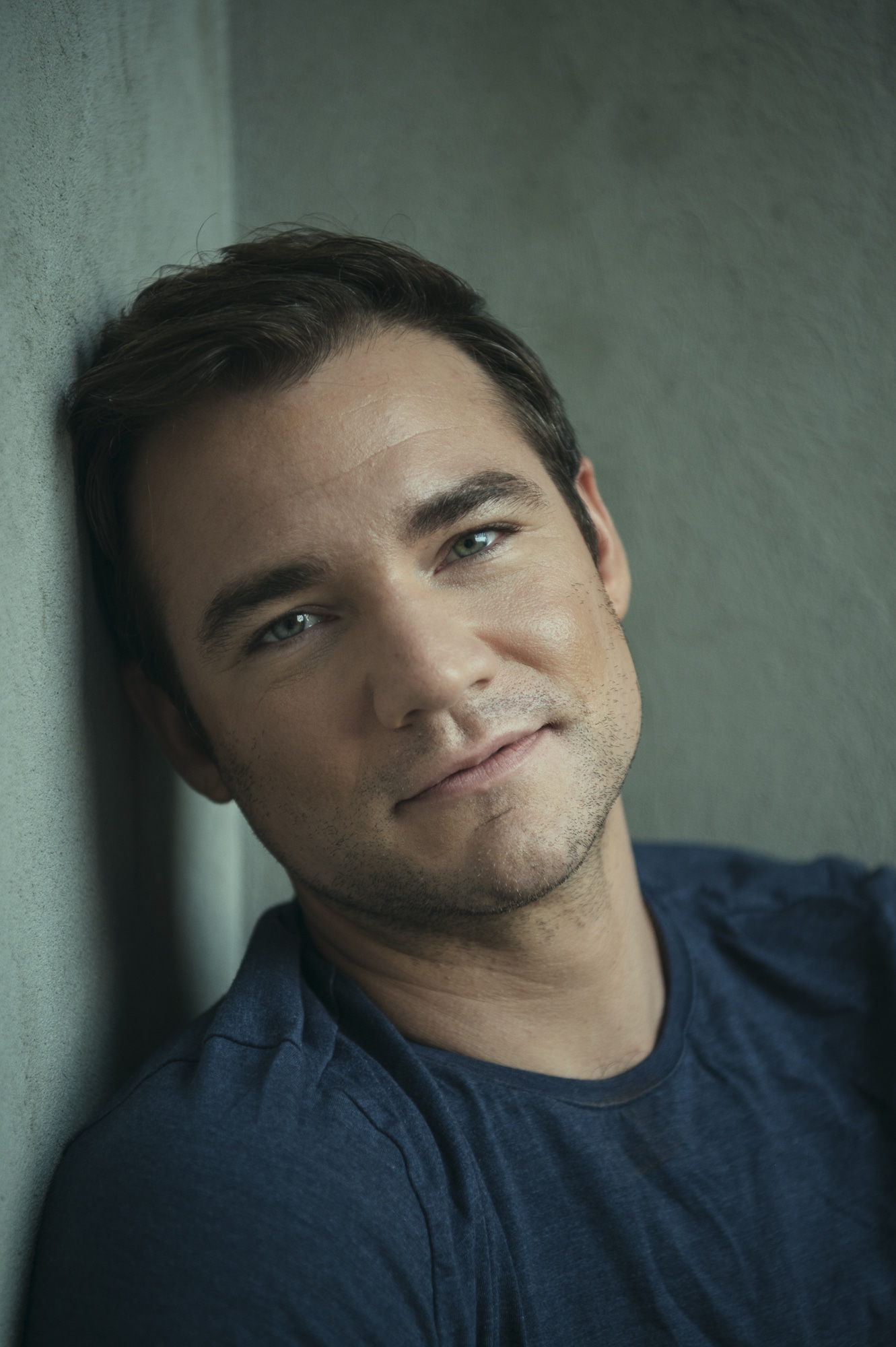
It forces you into the moment, I think. When you’re dancing, especially a choreographed dance, you can’t think about what happened yesterday or what might happen tomorrow, you’re just focused on your next step.
Yes, absolutely. And it’s interesting, every Monday we’re ready to compete and perform. And everyone’s nervous, because they see the audience and all the competitors. And I feel like something’s wrong with me, because I show up, and I’m not nervous. I’m so confident and excited. The audience is there and they give me good energy. I’m ready to show the world that whether I’m deaf or not, it doesn’t matter who you are, you can dance, I can dance, Daniel can dance.
It’s just so interesting, and I think it connects back to language. I’m an actor on stage, and in TV and movies, and the scripts are in English. I have to think about how to translate that script to my first language, ASL. I have to make sure I get that character right and signed brilliantly. I’m a method actor, so I like to dive in and put my head in that space. And of course, it causes me anxiety. But dancing is just showing your body moving, there is no language at all. It’s just knowing the beat and knowing your steps and your timing. And I feel like it gets into me quickly. So I’m having fun with my partner. I love new challenges, and I want to learn. People think it is a challenge because I’m deaf. But no, trust me, all those humans, they’re all competitors in the show, and they all have different challenges. And they all have their special gift too.
Grooming by Mallory Hunter

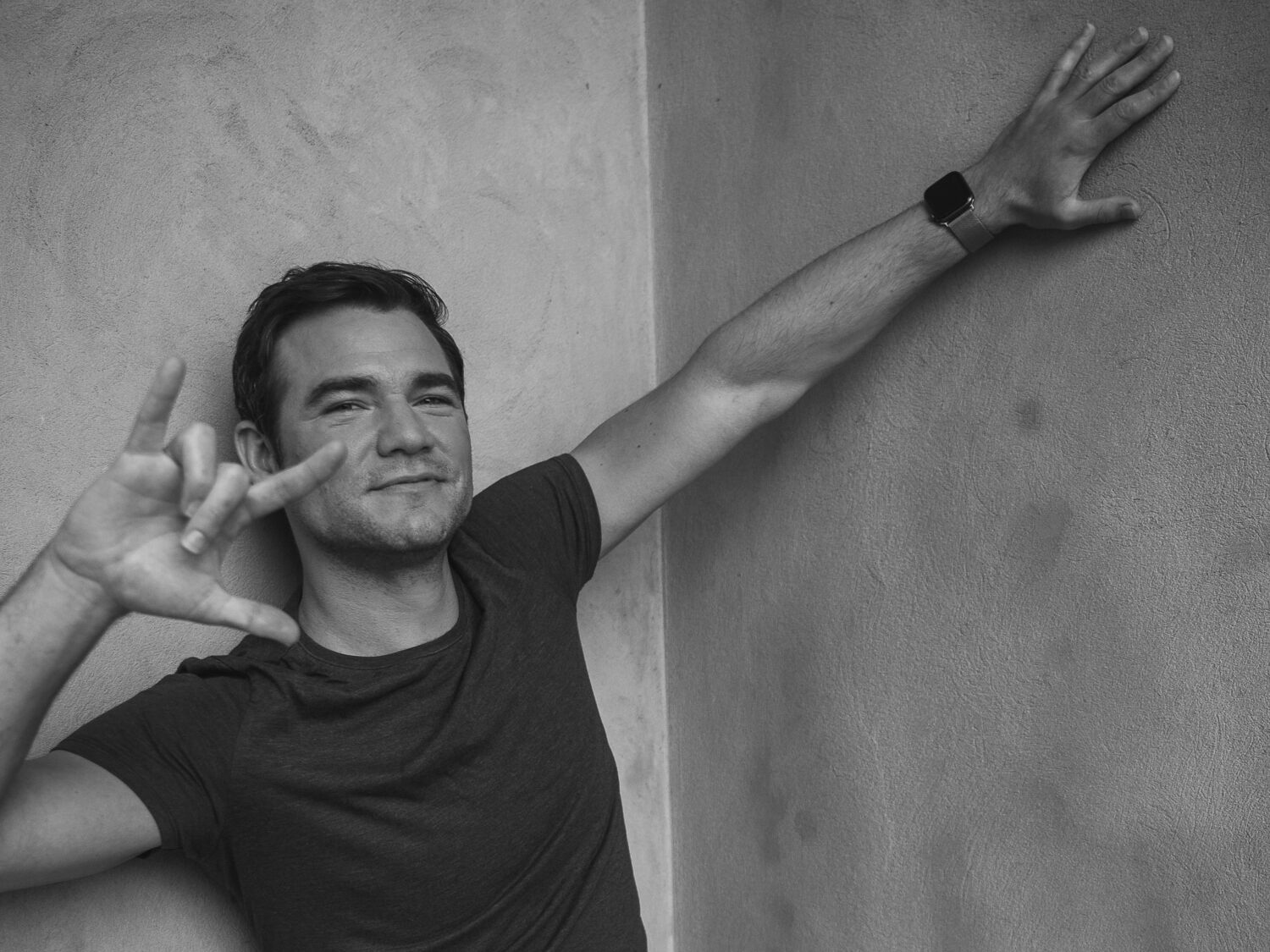






This article makes me wanna do more out in the hearing world and show them I can do some acting as well dancing too! Who knows what will become of me IF I put myself out there? Remains to be seen….
Fabulous article and interview! Thank you for sharing your insight and talent with us!
Amazing article and interveiw!
i loved this book i printed out and forced my 5 year old to read it. he loved it
this artical made me go out in publix and tell people that i make the best roobarb pie. and if you guys think im lying you check my youtube channel – Jarfeilds fun roobarb adventures
this article means a lot to me i ´ m 7 years old and NOT deaf. this makes me want to go out and public and express my joy that i just read in this article \ thank you
Wow. Just wow. This articr is sso imprtant yobme and i justvhave yo say that js ispired me to open my own deaf studio wherr i help deaf proplr train in my studio!
this inspired e to help
thanky ou to how every right this masterpice to the wor needs peple like you o right and insper t poelple to help the couse of liviung mpeopl
Holy Moley! Great Scott! Daniel Macentosh! Thes are the words that came our of my mouth when I reed this article. It was so good I puuncged my mama. mamamamamama I love you
when i was working at the front desk of my gym and a deaf person came in. i said joyfully ¨how are you doing sir!¨ then he looked at me and barely even smirked!!. and i thought to myself ¨ that was rude ¨ so then i went over to him when i was doing my hourly check, he was on the Elliptical Machine/ Cross Trainer. and i told him ¨Hey man!¨ he didnt even look at me! i started yelling at the dude. then he finally looked at me. and i said ¨there has been some complaints from people around here that you are being a creep¨ really no one complained i just didnt like this dude. then i kicked him out of my gym and i even put a sign up on the front door with a photo of the man that said ¨NOT ALLOWED¨ 2 years later from when this whole thing took place my friend came over and asked me ¨ hey one question¨ i said ¨yea sure whats up!¨ and he said back to me ¨why did you kick that guy out of your gym¨ i said he was being a creep and he was being rude by not responding to my questions or using the equipment right. my friend said ¨do you know he was deaf¨ at that moment i knew i did something wrong in my life i took down the poster as soon as i could knowing that i messed up. Now I have sign language interpreters in my gym so people can communicate with them and so i wont make that same mistake again.
Major Malcom coming navy blue and white and black and white and red white black wowieowow’s in my life right there with you and I have no doubt about that but you know what I she’s going through right now and I’m sure I’m coming in her to get it and I don’t know what to do about that I know she’s owiwiqyqywywywyq and I don’t know what to do with it but I